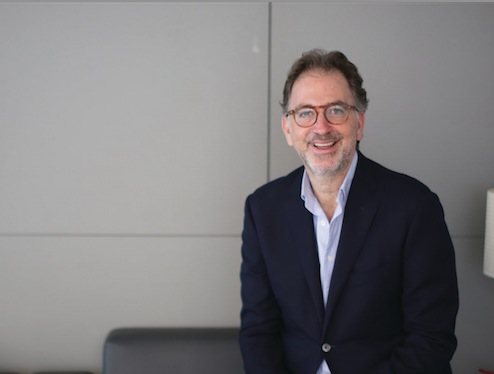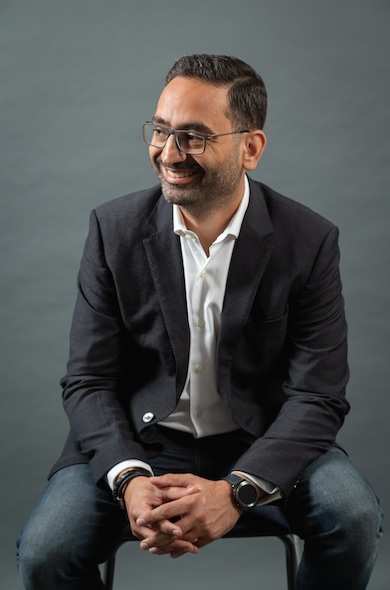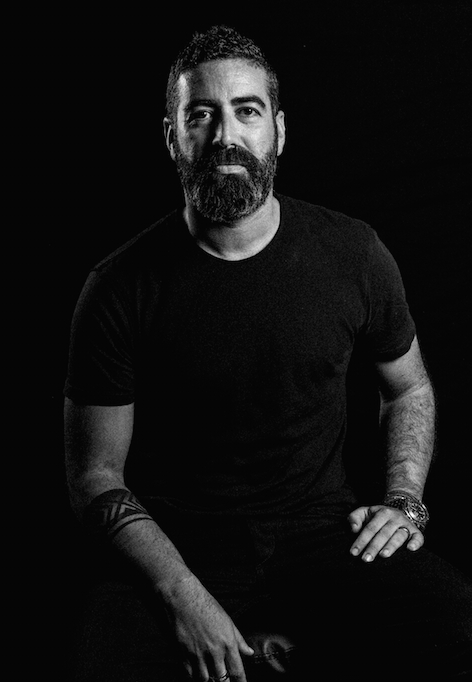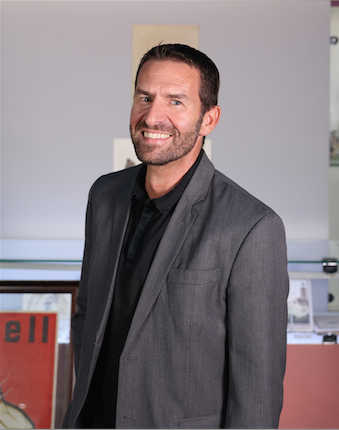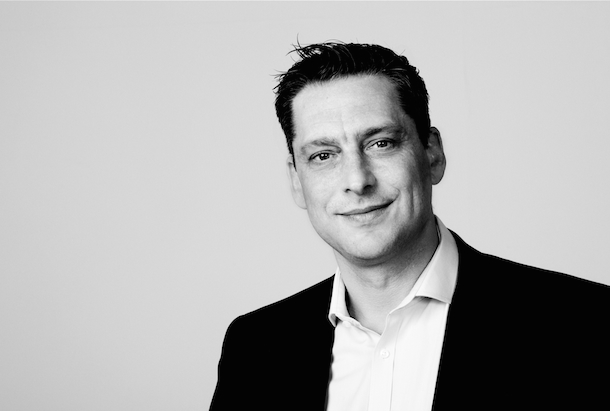Listen to the article
Inflation and the threat of an economic downturn may be causing jitters, but the UAE’s advertising industry is well placed to deliver growth
There’s never a quiet moment in the world of advertising. Russia’s invasion of Ukraine, rising inflation, the lingering effects of the Covid-19 pandemic, and the cost-of-living crisis have all caused a significant slowdown in the global economy. And despite various assertions to the contrary, the UAE is not immune to the effects of inflation or geopolitical shenanigans.
Certainly inflation and the prospect of an economic downturn are the greatest concerns for Nassib Boueri, CEO for the Middle East and North Africa at Wunderman Thompson. They are, too, for Ramzy Abouchacra, CEO of Carat MENA. “Economic uncertainty for sure is the factor that concerns the ad industry the most,” says Abouchacra. “This uncertainty can make it challenging for us as an industry to plan and allocate resources effectively and can also impact revenue and profitability. In such an environment, it becomes essential for companies like us to focus on building resilience and ensuring that our business can withstand potential headwinds. For that, we must take a proactive approach to risk management, identifying potential risks and putting in place contingency plans to mitigate their impact.”
In April, the International Monetary Fund downgraded the UAE’s projected economic growth by 0.7 per cent to 3.5 per cent, reflecting global economic headwinds. This figure is less than half of last year’s growth figure of 7.6 per cent, although the economic outlook for 2023 remains positive.
In January, Dubai unveiled an $8.7 trillion economic plan to boost trade and investment as it seeks to consolidate its status as a global hub, while the UAE’s diversification strategy has created new opportunities across various sectors of the economy. Advertising investment is forecast to grow by four per cent globally in 2023, according to the latest Dentsu Global Ad Spend Forecast report, and the UAE is no exception, even if the rate of that growth is slower than the previous year.
“The current environment is no longer financially attractive for people to relocate to the UAE.” - Nassib Boueri, CEO Wunderman Thompson MENA
Increased pressure on the industry and on business has created a greater need for efficiency, says Abouchacra. This has led to the nearshoring of roles to operational hubs in Egypt and Beirut. “This approach has given us access to key talent that can support the regional market, while ensuring commercial viability for the business,” he says. Other agencies such as LightBlue have made the strategic decision to double down on core competencies and drive innovation. Elsewhere, FP7 McCann Dubai has decoupled production capability in the shape of Craft MENA. This has increased “our ability to do fast-turnaround, cost-effective content and post-production at scale,” says Jon Marchant, managing director of FP7 McCann Dubai. Memac Ogilvy, meanwhile, has continued to invest in diverse talent and restructured “to allow our connected culture to integrate more seamlessly than ever,” explains Claus Adams, CEO of Memac Ogilvy UAE.
It is the rising cost of living, however, that is causing considerable concern among agency employees. Record-breaking demand for property in Dubai, for example, has seen rents skyrocket, with prices in February up 28.5 per cent on last year, according to global real estate analysts at CBRE. Higher food and beverage costs also helped to drive inflation to 4.3 per cent in March, although that figure is lower than the 6.7 per cent experienced in 2022. This rising cost of living is particularly tough on entry-level positions. To address this issue, Carat is providing various forms of support, such as flexible working hours and remote work arrangements. It is also adjusting salaries to absorb inflation whenever possible and has provided appreciation bonuses to its teams. LightBlue, meanwhile, is supporting its employees through flexible working, wellness programmes and competitive salaries.
“Economic uncertainty for sure is the factor that concerns the ad industry the most.” - Ramzy Abouchacra, CEO Carat MENA
In the medium to long term, Carat also aims to strengthen its presence in its hubs in Beirut and Cairo, where cost savings can be generated to support the growth of its teams. “This will enable us to manage workload more effectively and compensate our teams in a way that enhances their lifestyle,” explains Abouchacra. “This approach enables us to create a talent incubator that equips young talent with the skills necessary to unlock higher grade positions across the network. By providing opportunities for professional growth and development, we aim to empower our team members to achieve their career aspirations and contribute to the success of our organisation.”
Nearshoring to Beirut and Egypt is nothing new of course. But its increase, combined with growth in competitor markets, is a threat to the UAE, which for decades has prided itself on being the region’s advertising and media hub. Growth in Saudi Arabia and Qatar in particular is “worthy cause for concern in the UAE,” says Adams. “The question is, as these nations continue their social and economic transformations, how do we keep the UAE as competitive and attractive as before? Of course, we see an incredibly bright future for the market here, but we know we can’t take our foot off the pedal.” It’s a serious issue, especially as “the current environment is no longer financially attractive for people to relocate to the UAE,” says Boueri. “Therefore the focus is on existing talent, which is triggering an unsustainable talent war.”
The most visible example of this war has been provided by Publicis Groupe, which has been luring top talent from other agencies for the past year or so (see interview with Bassel Kakish). “I’ve seen firsthand the effects of the talent war on our agency post Covid,” says Dave Balfour, co-founder of LightBlue. “On the one hand, it has brought in a wealth of highly skilled and experienced professionals who have brought new ideas and expertise to our team. However, it has also made it difficult to keep momentum as a team and increased costs in recruitment fees that might have not been planned for. This trend is not unique to LightBlue, but rather reflects the wider industry’s emphasis on attracting and retaining top talent.”
Offering competitive compensation packages to retain employees is one option, but that places additional pressure on already tight budgets, says Abouchacra. “To overcome these challenges, companies must adopt effective talent management strategies that focus on not just hiring but also developing and retaining employees, by offering training and career development opportunities, providing a positive work culture, and offering competitive compensation and benefits packages.”
FP7 McCann, for example, has placed more emphasis on hiring young talent, while Memac Ogilvy has focussed on top-tier talent in strategy, project management, data and tools, as well as capabilities such as health and wellness.
“The future looks bright with countless opportunities for agencies to adapt and innovate…” - Dave Balfour, co-founder LightBlue
But the industry faces other challenges beyond the war for talent. These include increased competition, ad-blocking, data privacy concerns, creative fatigue, and a lack of diversity and inclusion, says Balfour. “Additionally, client expectations are increasing, with demands for faster turnaround times, more customised solutions, and measurable results putting pressure on agencies to adapt.” There is also more in-housing, adds Marchant, while marketing budgets have been squeezed and an evolutionary change has taken place in terms of what constitutes the role of a modern chief marketing officer.
"There is still good growth to be had in the UAE and the market seems buoyant.” - Jon Marchant, MD FP7 McCann Dubai
Then there’s the perennial issues of agency remuneration and unpaid pitches. The latter, says Adams, means agencies are incredibly stretched. “We pitch at a volume considerably above the global average in this market, and with those being almost always unpaid, we set a precedent that our work must be high quality at low prices,” he says. “This is a major challenge for us and our people. I can’t imagine what it’s like for start-ups and boutiques. It’s my belief that the industry must come together to collectively resist unpaid pitches and emphasise the importance of fair compensation for the value provided. This is not only reflected in the hours we give, but also in how clients perceive the value of work. Creative ideas that make up the foundations of a great pitch are undervalued, and this has a negative effect on our practice throughout the service supply chain.”
Marchant agrees. “We still have a regular amount of pitch briefs arriving, asking for a laundry list of creative, turned around in record time,” he says. “This would be fine if we didn’t have 15 existing clients to look after, so responding immediately remains a challenge. I would like the industry to form a pact to not respond to pitch briefs where less than three weeks for a creative response is offered. Better still, clients should be congratulated when deploying a smarter approach to finding agencies that doesn’t cripple creative departments. At the end of the day, creativity is subjective, and can always be worked on. Smart CMOs approach agency selection with a strong focus on team, chemistry, strategic prowess, and examples of impact on other clients’ brands and businesses.”
On top of which must be placed the significant disruption caused by technologies such as generative artificial intelligence (AI), the rise of which will “transform the advertising landscape, presenting new opportunities and challenges that advertisers must stay up-to-date on,” insists Balfour. “AI is a transformative technology shaping the future of experiential, revolutionising data analysis, content creation, and consumer interactions for personalised and engaging experiences. It’s here and it’s not going anywhere so you must embrace it.”
“I think the most pressing challenge that requires deep thought and debate is the exponential rise of generative AI,” says Adams. “Text-to-image, text-to-video, ChatGPT. We’re even hearing about non-invasive brain-to-text. With major thought leaders such as Google claiming these will totally disrupt their business, clients are rightly looking to us for answers as well as solutions. We don’t need to act too quickly. We still fundamentally believe the differentiator for advertising is and always will be in human creativity, but we must continue to seek the latest insights and expertise from our network, growing our internal knowledge, and translate these complex new ideas into accessible and meaningful conversations for our clients.”
None of which is to say things don’t look positive. Far from it. Generative AI, social commerce and advanced data analytics will allow for hyper-personalisation, providing significant opportunities for both agencies and brands, believes Adams. Meanwhile, digital and OOH advertising will be key drivers of growth. And as the UAE’s economy continues to expand and consumer spending increases, the country is likely to see an increase in demand for advertising across various industries, including technology, start-ups, government, retail, hospitality and tourism, adds Abouchacra.
"There is still good growth to be had in the UAE and the market seems buoyant,” says Marchant, who remains cautiously optimistic. “You just have to review my inbox for RFP invitation emails to know this. We are also seeing decent organic growth from existing clients who ask us to add a new specialism and/or new brand to our existing scope. There is naturally an influx of social only scopes or integrated scopes to handle creative and social through one streamlined team. Government spending is also on the rise, particularly with initiatives like Cop 28 and further investment in the hospitality and tourism sectors. In addition to all of this, try to get a flight to Riyadh on a Sunday or Monday morning and it will confirm that opportunities abound in the kingdom.”
“We see an incredibly bright future for the market here, but we know we can’t take our foot off the pedal.” - Claus Adams, CEO Memac Ogilvy UAE
For Abouchacra, focusing on growth, building capabilities and growing talent will be critical priorities for organisations looking to thrive in the months and years ahead. By investing in these areas, “we can build a strong foundation for long-term success and position ourselves for growth and profitability,” he says.
It is also clear that building stronger client relationships is a must, adds Balfour. “Clients now demand more customised solutions and increased transparency in agency/client interactions. This is why long-term, collaborative relationships with clients are becoming more important than ever.”
“The future looks bright with countless opportunities for agencies to adapt and innovate in response to the evolving needs and expectations of clients and consumers,” believes Balfour. “Clients are brave in this market and we like that. It’s time to have fun again.”
This article was first published in ArabAd print edition dated Q2, 2023

-Lebanon.jpg)

